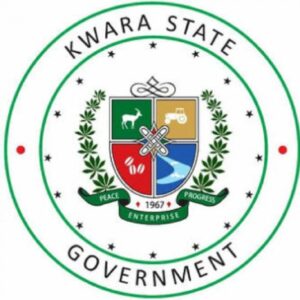
Cervical cancer: WHO advocates increase in introduction of HPV vaccine
Dr Matshidiso Moeti, World Health Organisation (WHO) Regional Director for Africa, says Human papillomavirus (HPV) vaccine introduction needs to be increased to prevent cervical cancer.
Moeti said this in a statement issued through WHO Nigeria on Wednesday in Abuja to mark the World Cancer Day.
World Cancer Day is an international day marked on Feb. 4 to raise awareness of cancer and to encourage its prevention, detection, and treatment.
She said as part of the first wave, countries implementing this strategy, Eswatini, Guinea, Malawi, Rwanda, Uganda and Zambia were scaling-up comprehensive cervical cancer programmes
“So far, 17 African countries have introduced HPV vaccination nationwide, including Rwanda and Zimbabwe, who are both achieving high national HPV vaccine coverage with the commitment of their governments and partners.
“Looking ahead, the rising cancer burden will place additional pressures on resource-constrained health systems and on patients and their families who incur catastrophic costs to access services.
“As countries work toward achieving universal health coverage with WHO’s support, provision of cancer services, including pain relief, should be integrated in benefits packages and social insurance schemes.
“To strengthen cancer services, capacity-building is needed of health workers at the district level, along with implementation of a comprehensive surveillance system, and investment in digital innovations to improve cancer care.’’
The director, however, called on the stakeholders to improve advocacy to reducing stigma around cancer.
“We all have a role to play in reducing stigma around cancer, improving understanding of this disease and encouraging people to seek early screening and care,’’ she said.
According to her, WHO joins the international community in commemorating the 2021 World Cancer Day under the theme “I am and I will”, marking the end point of this three-year campaign.
“The campaign has sought to reduce fear, increase understanding and change behaviours and attitudes around cancer.
“Over the past 20 years, new cancer cases have more than doubled in the African Region from 338,000 cases reported in 2002 to almost 846,000 cases in 2020.
“The most common forms are cancers of the breast, cervix, prostate, bowel, colon, rectum and liver.
“The risk factors include older age and family history, use of tobacco and alcohol, a diet high in sugar, salt and fat, physical inactivity, being overweight, and exposure to specific chemicals, among others.
“Industry interference is a growing challenge, including promotion and marketing of known cancer-causing products, such as tobacco.’’
Moeti said 44 countries in the Region had ratified the WHO Framework Convention on Tobacco Control toward reducing tobacco use and 20 countries had ratified the WHO Protocol to Eliminate Illicit Trade in Tobacco Products.
She said in many communities in African countries, people had limited access to cancer screening and early detection, diagnosis and treatment.
“For example, only about 30 per cent of African children diagnosed with cancer survive, compared to 80 per cent of children in high-income economies.
“Challenges in access to cancer care are further compounded in times of crisis, like the current COVID-19 pandemic.
“The African Region also bears the highest burden of cervical cancer among WHO regions.
“So, the World Health Assembly’s adoption in 2020 of the Global strategy to accelerate the elimination of cervical cancer as a public health problem was of key relevance to African countries,’’ the regional director said.



